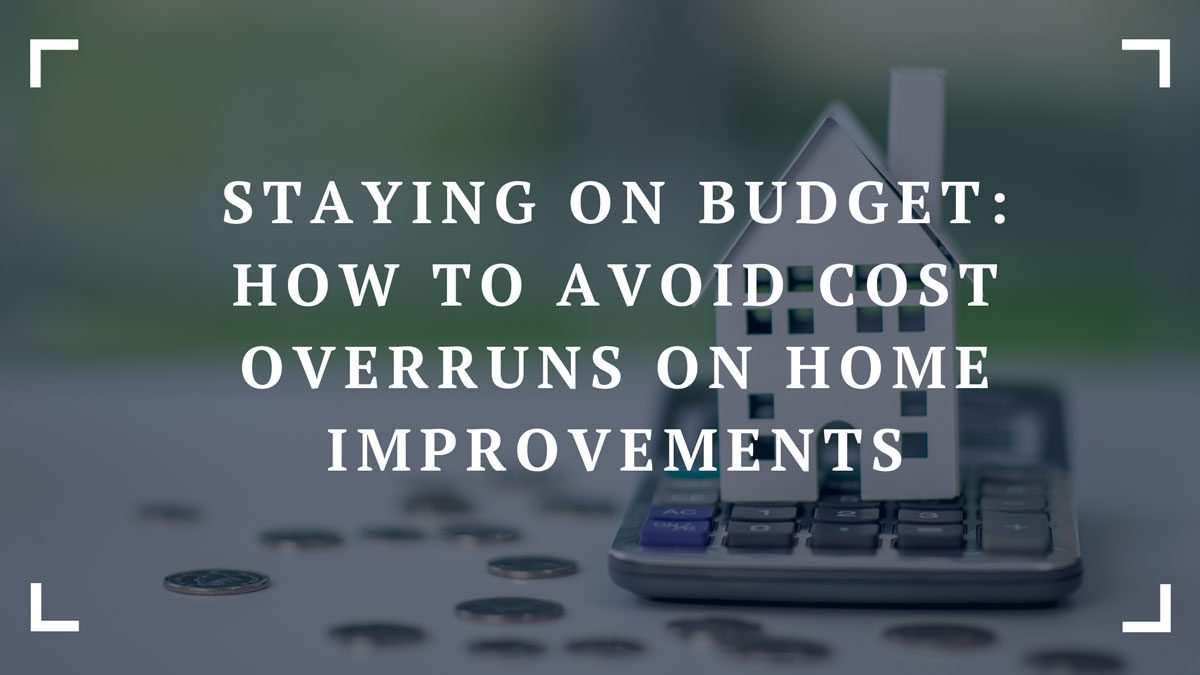Embarking on a home improvement project is an exciting and transformative endeavor. Whether you’re planning to renovate your kitchen, upgrade your bathroom, or add a new room to your house, the possibilities are endless. However, without proper budget management, even the most well-intentioned project can spiral into a financial nightmare.
Cost overruns are a common concern for homeowners undertaking home improvements. Unexpected expenses, inaccurate estimates, and uncontrolled spending can quickly drain your resources and leave you in a state of financial stress. That’s why it’s crucial to approach your project with a clear plan and effective strategies to ensure that you stay on budget and achieve the desired outcome.
In this article, we will delve into the importance of avoiding cost overruns and explore practical strategies that will empower you to maintain control of your budget throughout the home improvement process. By implementing these techniques, you can navigate the complexities of your project while safeguarding your financial well-being.
So, let’s dive in and discover the key strategies that will enable you to avoid cost overruns and experience the satisfaction of transforming your home while maintaining financial stability.

Planning and Preparation
Before diving into a home improvement project, thorough planning and preparation are essential. Start by setting a realistic budget based on your financial capabilities and project goals. Research and obtain multiple quotes from reputable Home Improvements Contractors to ensure you have an accurate estimate of the costs involved. Create a detailed project plan and timeline, including all necessary tasks and milestones. Identify potential risks and develop contingency plans to mitigate unforeseen circumstances.
Prioritizing and Making Decisions
Clearly defining your project goals and priorities will help you make informed decisions while staying within budget. Differentiate between essential and non-essential elements of the project, focusing on what matters most to you. This way, you can allocate your resources accordingly and avoid overspending on unnecessary features. Consider seeking cost-effective alternatives and exploring creative solutions that align with your budgetary constraints.
Hiring and Managing Home Improvements Contractors
Choosing the right Home Improvements Contractor is vital for both the success of your project and maintaining your budget. Take the time to carefully select reputable and experienced contractors who have a track record of delivering quality work within budgetary limits. Review contracts thoroughly, ensuring they clearly outline payment terms and any potential additional costs. Regularly communicate with your contractor to address any concerns and keep a close eye on the project’s progress.
Monitoring and Controlling Expenses
Tracking project expenses is a crucial step in staying on budget. Maintain a detailed budget spreadsheet where you record all expenses related to the home improvement project. Regularly review and adjust the budget as necessary to ensure you are staying within your financial limits. Implement cost-saving measures without compromising quality, such as opting for more affordable materials or exploring discounts and sales. Avoid unnecessary change orders and scope creep by adhering to the original project plan.
Smart Material and Product Selection
Choosing the right materials and products can significantly impact your project’s overall cost. Research and compare prices for materials and seek recommendations from your Home Improvements Contractor. Consider the long-term costs and benefits of different options, as sometimes investing a bit more upfront can lead to savings in the future. Explore discounts, sales, and rebates to find opportunities for cost savings. Opt for durable and energy-efficient materials that will reduce future maintenance and utility expenses.
DIY and Self-Management
Assess your own skills and capabilities to determine if there are aspects of the project you can handle as a do-it-yourself (DIY) endeavor. Undertaking some tasks yourself can help control costs. However, be honest about your limitations and seek professional assistance when necessary. Balancing DIY work with professional involvement ensures quality and helps avoid costly mistakes.
Regular Communication and Oversight
Maintaining open communication with your Home Improvements Contractor and suppliers is crucial for budget management. Regularly communicate with them to stay updated on the progress of the project and address any concerns promptly. Conduct regular site visits and inspections to ensure work is being completed according to plan. By staying actively involved, you can prevent potential cost overruns and address any issues before they escalate.
Contingency Planning
It’s wise to set aside a contingency fund for unexpected expenses that may arise during the home improvement project. Unforeseen issues or changes in the project scope can impact your budget. By having a contingency fund in place, you’ll be prepared to handle these situations without derailing your entire project. Additionally, plan for potential delays and setbacks, adjusting your project plan accordingly.
Conclusion
Staying on budget during home improvements requires careful planning, effective decision-making, and diligent oversight. By following the strategies outlined in this article, you can minimize the risk of cost overruns and ensure a successful outcome for your project. Remember, maintaining communication with your Home Improvements Contractor, monitoring expenses, and making informed choices will help you achieve your desired results without breaking the bank. Stay vigilant throughout the process, prioritize budget management, and enjoy the transformative power of home improvements within your financial means.


